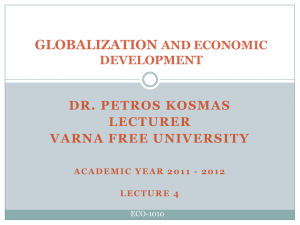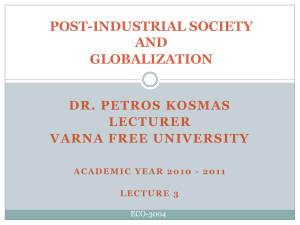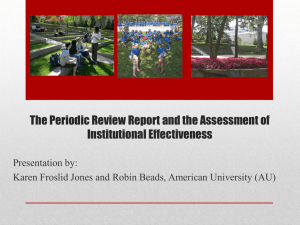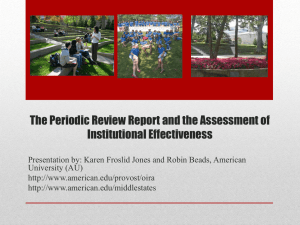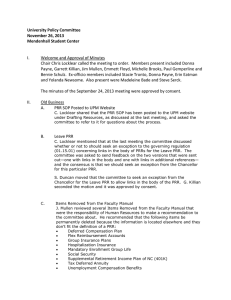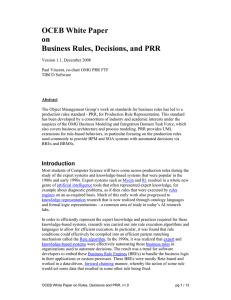Euro-rejection as a `populist common denominator`?
advertisement
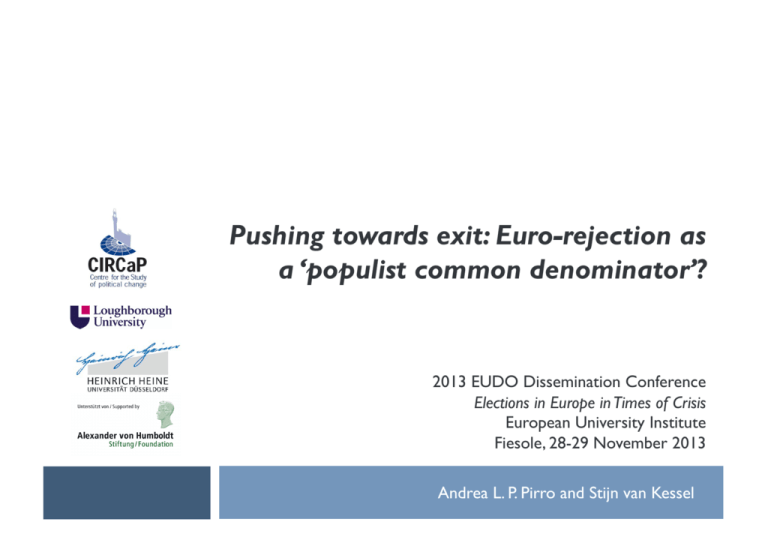
Pushing towards exit: Euro-rejection as a ‘populist common denominator’? 2013 EUDO Dissemination Conference Elections in Europe in Times of Crisis European University Institute Fiesole, 28-29 November 2013 Andrea L. P. Pirro and Stijn van Kessel Why a ‘populist common denominator’? Assumptions about Euroscepticism • Euroscepticism intrinsic predisposition of peripheral parties (e.g. Taggart 1998; Hooghe et al. 2002) • Radical parties use ‘Europe’ primarily as an ‘ideological crowbar’ (Taggart 1998) • Populist radical right (PRR) parties tend to be ‘Eurosceptic’ rather than ‘Euroreject’ (Mudde 2007) Hypotheses ‘Euro-rejection’ as a pan-European ‘common denominator’ for the PRR? • European sovereign debt crisis provides an incentive for populist radical right parties to… a) b) • move from ‘Euroscepticism’ to ‘Euro-rejection’; treat ‘Europe’ as a primary issue; Motives of radicalisation and increase in salience? Theoretical framework • EU-pessimists: do not support the EU as it is at the moment, or are pessimistic about the direction of its development: o Eurosceptics: believe in the basic tenets of European integration, critical attitude towards the current process of integration; o Eurorejects: fail to support one or more of the ideas underlying European integration Research design • Four case studies (2005-2006, 2010, 2012) • Qualitative content analysis of party discourses (manifestos; public statements and interviews) Hungary: Jobbik and ‘Europe’ • • • • • Programme: clericalism, irredentism, ethnic minorities, corruption, ‘social national’ economics National elections: 2.2% (2006); 16.7% (2010) Europe in 2006: pro-withdrawal (threat sovereignty and national interests, ‘south-Americanisation’); secondary theme (focus on postcommunist transition and globalisation); Europe in 2010: EU platform for resolution questions national interest (minorities abroad); more salient theme after entrance EP; Europe in 2012: return to fierce anti-EU rhetoric (referendum on withdrawal), only partly referring to monetary issues; greater emphasis on Europe Slovakia: SNS and ‘Europe’ • • • • Programme: ethnic (Hungarian and Roma) minorities, traditional values National elections: 11.7% (2006); 5.1% (2010); 4.6% (2012) Europe in 2006 and 2010: signs of pragmatism within Eurosceptic agenda; only secondary importance in party platform Europe in 2012: bailout of Eurozone countries; explicit appeals to withdrawal from the EU and end of common currency; primary issue The Netherlands: PVV and ‘Europe’ • • • • • Programme: anti-Islam, immigration, law and order, patriotism, welfare chauvinism National elections: 5.9% (2006); 15.5% (2010); 10.1% (2012) Europe in 2006: restoring sovereignty; emphasis on economic cooperation; no call for ‘exit’; secondary theme (Islam dominates); Europe in 2010: continuity in discourse; Europe as ‘multicultural super state’; criticism of Greek bailouts; Europe in 2012: call for ‘exit’; resistance to Brussels dictates and bailouts; criticism of Greeks and East-Europeans; primary campaign theme United Kingdom: UKIP & BNP and ‘Europe’ • • • • • Programme: anti-EU, law and order, patriotism, anti-immigration and anti-Islam (esp. BNP) National elections: best results in 2010 (UKIP 3.1%; BNP 1.9%) Europe in 2005: pro-withdrawal; EU is costly, undemocratic and harms British sovereignty; Europe in 2010: continuity in discourse, crisis playing a very marginal role (absent in manifestos); Europe in 2012: continuity, occasional remarks (‘hate to say I told you so’, crisis used by EC as excuse for demanding more power) The EU issue: salience and position • As of 2012, EU took centre stage and PRR parties converged on ‘Eurorejection’ o o Process transcends regional divisions and other contextual idiosyncrasies Membership Eurozone: different motives (i.e. loss of national sovereignty and monetary issues) Conclusions • European crisis as catalyst for Euro-rejection as a ‘common denominator’ of the PRR across Europe • PRR parties: concomitant radicalisation of discourse on Europe (‘exit’) and prioritisation of the issue, irrespective of contextual differences • Further research: o o Electoral consequences (demand-side) Impact on party competition




